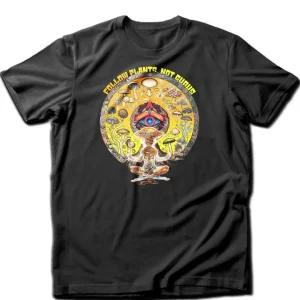Introduction
Chris Rock, the renowned comedian and actor, has recently opened up about his positive experiences with psychedelics. His candidness about using these substances for mental health and personal growth reflects a broader cultural shift towards the acceptance and understanding of psychedelics. This article explores Rock’s journey with psychedelics, the therapeutic potential of these substances, and the broader implications for mental health treatment.
Chris Rock’s Psychedelic Journey
Chris Rock’s journey with psychedelics began as part of his quest for mental clarity and emotional healing. The comedian has long been known for his sharp wit and incisive social commentary, but behind the laughter, he has faced significant personal struggles, including trauma and anxiety. Rock’s exploration of psychedelics appears to be part of a broader trend among celebrities and public figures who are using these substances to address mental health issues.
Rock has spoken about how psychedelics, particularly psilocybin mushrooms, have helped him confront and process his past traumas. He emphasizes that these experiences have not only provided relief from anxiety and depression but also offered profound insights into his life and relationships. By openly discussing his positive experiences, Rock is helping to destigmatize the use of psychedelics and highlight their potential as therapeutic tools.
Therapeutic Potential of Psychedelics
The therapeutic potential of psychedelics has been a topic of increasing interest and research in recent years. Substances like psilocybin (found in magic mushrooms), LSD (lysergic acid diethylamide), and MDMA (3,4-methylenedioxymethamphetamine) have shown promise in treating a range of mental health conditions, including depression, anxiety, PTSD (post-traumatic stress disorder), and substance use disorders.
**1. **Psychedelic-Assisted Therapy
Psychedelic-assisted therapy involves the use of psychedelic substances in a controlled, therapeutic setting. This approach has been shown to facilitate deep emotional and psychological healing. Research suggests that psychedelics can help break down entrenched patterns of thinking and behavior, allowing individuals to gain new perspectives on their lives and issues.
2. Mechanisms of Action
Psychedelics work by affecting the brain’s serotonin receptors, particularly the 5-HT2A receptor. This interaction leads to altered states of consciousness, characterized by enhanced sensory perception, emotional release, and mystical-type experiences. These effects can help individuals access and process difficult emotions and memories, often leading to lasting therapeutic benefits.
3. Clinical Research
Numerous studies have demonstrated the efficacy of psychedelics in treating mental health conditions. For example, a study conducted by Johns Hopkins University found that psilocybin-assisted therapy significantly reduced symptoms of depression and anxiety in patients with life-threatening cancer. Another study published in the Journal of Psychopharmacology reported that a single dose of psilocybin produced substantial and sustained decreases in depression and anxiety in patients with treatment-resistant depression.
Psychedelics and Personal Growth
Beyond their therapeutic potential, psychedelics are also being explored for their role in personal growth and self-discovery. Many individuals, including Chris Rock, report that psychedelics have helped them gain deeper insights into their lives, relationships, and personal goals. These substances can facilitate profound experiences of interconnectedness and unity, often described as mystical or spiritual in nature.
1. Enhanced Creativity and Problem-Solving
Psychedelics have been shown to enhance creativity and problem-solving abilities. By disrupting habitual patterns of thought, these substances can help individuals approach problems from new angles and generate innovative solutions. This effect has been harnessed by artists, writers, and thinkers throughout history, including figures like Steve Jobs and Aldous Huxley.
2. Mindfulness and Presence
Psychedelics can also promote mindfulness and a greater sense of presence. Users often report feeling more connected to the present moment and more aware of their thoughts, feelings, and surroundings. This heightened awareness can lead to greater emotional regulation and a deeper appreciation of life.
3. Spiritual and Mystical Experiences
Many people who use psychedelics report experiencing spiritual or mystical states of consciousness. These experiences can involve a sense of unity with the universe, a dissolution of the ego, and profound feelings of love and interconnectedness. Such experiences can be transformative, leading to lasting changes in perspective and behavior.
Chris Rock’s Influence and the Broader Cultural Shift
Chris Rock’s openness about his psychedelic use is part of a larger cultural shift towards the acceptance and normalization of these substances. As more public figures speak out about their positive experiences with psychedelics, the stigma surrounding these substances continues to diminish.
1. Celebrity Advocacy
Several celebrities have publicly discussed their use of psychedelics, including Joe Rogan, Mike Tyson, and Gwyneth Paltrow. Their advocacy has helped to bring attention to the potential benefits of these substances and encourage more people to explore them responsibly.
2. Legalization and Decriminalization
There is also a growing movement towards the legalization and decriminalization of psychedelics. Cities like Denver, Oakland, and Santa Cruz have decriminalized the possession and use of psilocybin mushrooms, and Oregon has legalized psilocybin for therapeutic use. These legal changes reflect a growing recognition of the potential benefits of psychedelics and a desire to create a more compassionate and effective approach to mental health care.
3. Future Directions
As research continues to uncover the therapeutic potential of psychedelics, it is likely that these substances will become more widely accepted and integrated into mainstream mental health treatment. Psychedelic-assisted therapy could become a standard option for treating a range of conditions, and psychedelics could play a significant role in promoting personal growth and well-being.
Conclusion
Chris Rock’s positive experiences with psychedelics highlight the potential of these substances to promote healing and self-discovery. As more public figures speak out about their use of psychedelics, the stigma surrounding these substances continues to diminish, paving the way for broader acceptance and integration into mainstream mental health care. With ongoing research and advocacy, psychedelics have the potential to revolutionize the way we approach mental health and personal growth.


